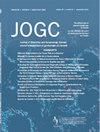麻醉患者的同意和教育敏感性检查:加拿大医科学生的经验。
IF 2
Q2 OBSTETRICS & GYNECOLOGY
引用次数: 0
摘要
目的:本研究调查了加拿大各地医科学生在麻醉下进行教育敏感性检查(如骨盆、直肠检查)时的相关经验:本研究调查了加拿大各地医科学生在麻醉下进行教育敏感性(如骨盆、直肠)检查(EUAs)时同意的相关经验:方法: 制作了一份双语在线问卷,并分发给加拿大各地的医科学生:结果:在134名受访者中,63%的人在培训期间做过骨盆EUA,35%的人做过直肠EUA,11%的人做过其他敏感EUA。在进行过骨盆超声辅助检查的受访者中,28%的人不确定是否征得了同意,26%的人表示没有征得具体的同意,20%的人表示征得了具体的同意,25%的人对征得同意的经历喜忧参半。对于直肠超 声波检查,48% 的受访者表示没有征得具体的同意,37% 的受访者不确定是否征得了同意,13% 的受访者表示征得了具体的同意,2% 的受访者表示有不同的同意经历。大多数受访者对学生盆腔超声检查的同意程序感到不舒服(36%)或不确定是否舒服(32%);31%的受访者感到舒服。在开放式回答中,受访者描述了与可变性、不适感和权威性有关的各种体验:结论:在加拿大各地的医学培训中,未经同意的教育敏感性EUA仍在继续发生,尽管同意的做法千差万别。大多数受访者表示,在培训期间,他们对教育敏感性EUA的同意方式感到不适或不确定是否感到舒适。本文章由计算机程序翻译,如有差异,请以英文原文为准。
Consent and Educational Sensitive Exams on Anesthetized Patients: Experiences of Medical Students Across Canada
Objectives
This study investigates experiences of medical students across Canada related to consent for educational sensitive (i.e., pelvic, rectal) exams under anesthesia (EUAs).
Methods
A bilingual online questionnaire was developed and distributed to medical students across Canada.
Results
Of 134 respondents, 63% had performed a pelvic EUA, 35% a rectal EUA, and 11% another sensitive EUA during their training. For those who had performed pelvic EUA, 28% were unsure if consent had taken place, 26% reported no specific consent, 20% reported specific consent, and 25% had mixed experiences of consent. For rectal EUAs, 48% reported no specific consent, 37% were unsure if consent had taken place, 13% reported that there had been specific consent, and 2% reported mixed experiences. Most respondents were uncomfortable (36%) or not sure if they were comfortable (32%) with how the consent process was handled for student pelvic EUAs; 31% were comfortable. In open-ended responses, respondents described experiences related to variability, discomfort, and authority.
Conclusions
Non-consensual educational sensitive EUAs continue to take place in medical training across Canada, although practices of consent are highly variable. The majority of respondents reported being uncomfortable or unsure if they were comfortable with how consent for educational sensitive EUAs was practised during their training, and some respondents struggled to express their discomfort given the power dynamics at play.
求助全文
通过发布文献求助,成功后即可免费获取论文全文。
去求助
来源期刊

Journal of obstetrics and gynaecology Canada
OBSTETRICS & GYNECOLOGY-
CiteScore
3.30
自引率
5.60%
发文量
302
审稿时长
32 days
期刊介绍:
Journal of Obstetrics and Gynaecology Canada (JOGC) is Canada"s peer-reviewed journal of obstetrics, gynaecology, and women"s health. Each monthly issue contains original research articles, reviews, case reports, commentaries, and editorials on all aspects of reproductive health. JOGC is the original publication source of evidence-based clinical guidelines, committee opinions, and policy statements that derive from standing or ad hoc committees of the Society of Obstetricians and Gynaecologists of Canada. JOGC is included in the National Library of Medicine"s MEDLINE database, and abstracts from JOGC are accessible on PubMed.
 求助内容:
求助内容: 应助结果提醒方式:
应助结果提醒方式:


